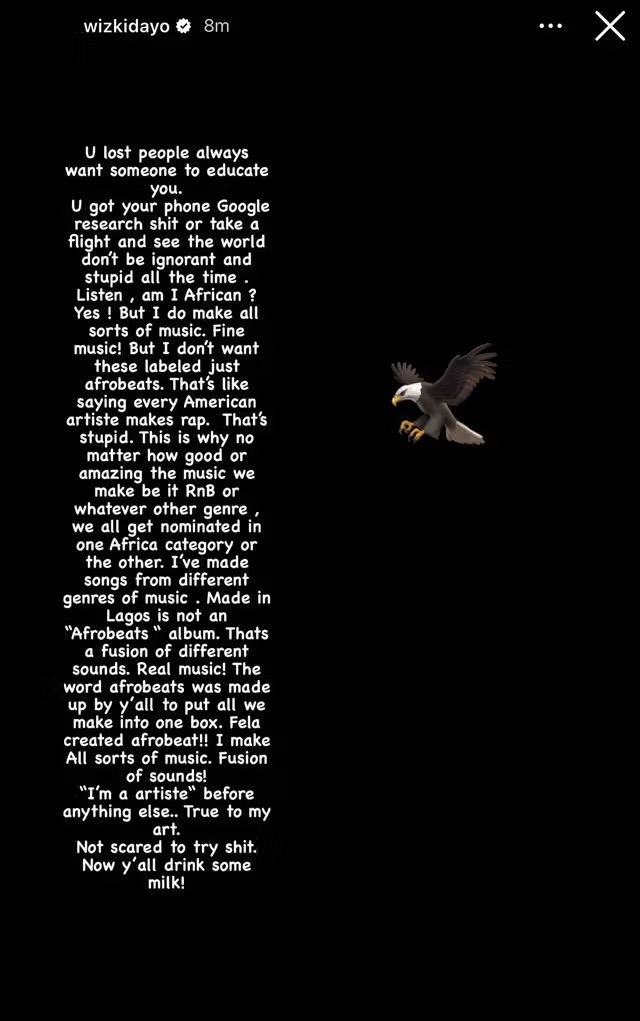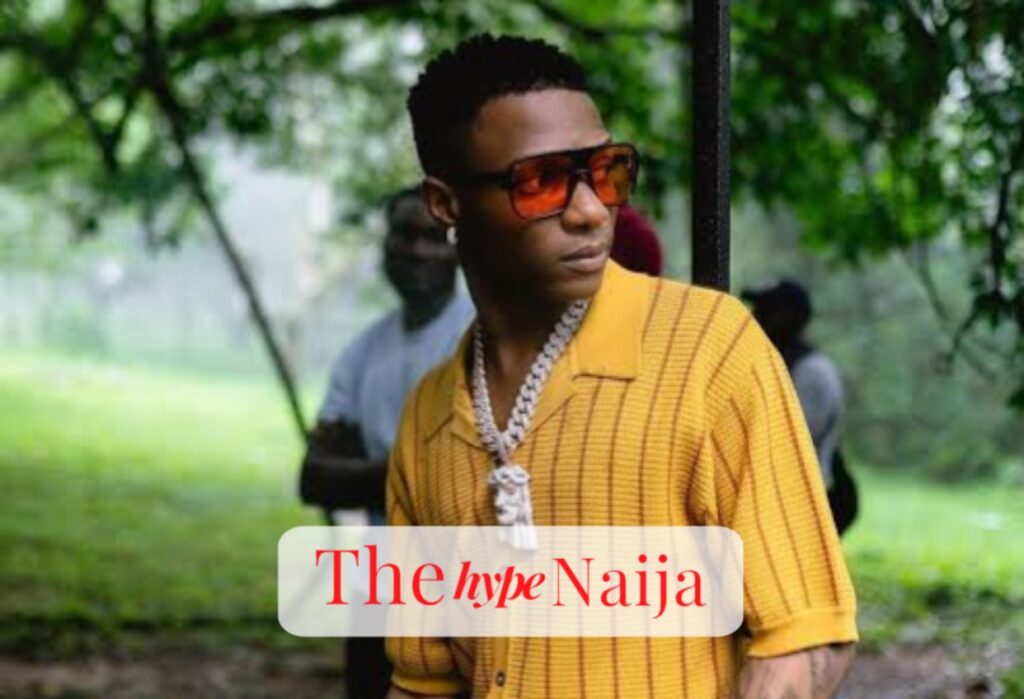Nigerian superstar Wizkid has sparked conversations across the music industry with his recent declarations on social media, expressing his desire to transcend the Afrobeats genre. Known for his hit song “Essence,” Wizkid’s statements have added him to the list of Nigerian artists seeking to distance themselves from the Afrobeats classification, a genre that has brought global recognition to Nigerian talents.

Over two days, Wizkid took to his Instagram to emphasize his multifaceted musical identity. “I am not a fucking Afrobeats artiste! I’m not Afro anything!” he proclaimed, shortly after announcing the completion of his upcoming album, “Morayo,” on March 15, 2024. These statements have led to mixed reactions, with some viewing them as a promotional tactic for his album, while others see a deeper message about the restrictive nature of genre labels.
Beyond Genre Constraints: Wizkid’s Three Main Arguments
- Musical Versatility: Wizkid argues for a broader recognition of his musical range, stating, “I do make all sorts of music. Fine music! But I don’t want these labelled just Afrobeats.” He draws an analogy to the American music scene to underline the absurdity of one-dimensional genre classifications.
- Impact on Award Recognition: The artist also highlights the limitations placed on African musicians during awards season, where diverse sounds are often lumped into singular African categories, regardless of their actual genre.
- Questioning the ‘Afrobeats’ Label: Wizkid critiques the origin and application of the ‘Afrobeats’ tag, asserting it oversimplifies the rich diversity of music coming from African artists. He pays homage to Fela Kuti’s Afrobeat, distinguishing his own work as a “fusion of sounds.”
Wizkid’s stance opens a broader dialogue about the evolution and categorization of music genres, especially for artists from the African continent. His emphasis on being an “artiste” first reflects a growing sentiment among musicians who wish to be recognized for their individual artistry beyond geographical or genre-based confines.

As the discussion unfolds, it’s clear that Wizkid, along with contemporaries like Burna Boy and FireboyDML, is challenging the music industry to think beyond traditional labels and embrace the complex identities of global artists. This move not only seeks to redefine Wizkid’s own legacy but also encourages a more nuanced understanding of African music on the world stage.




